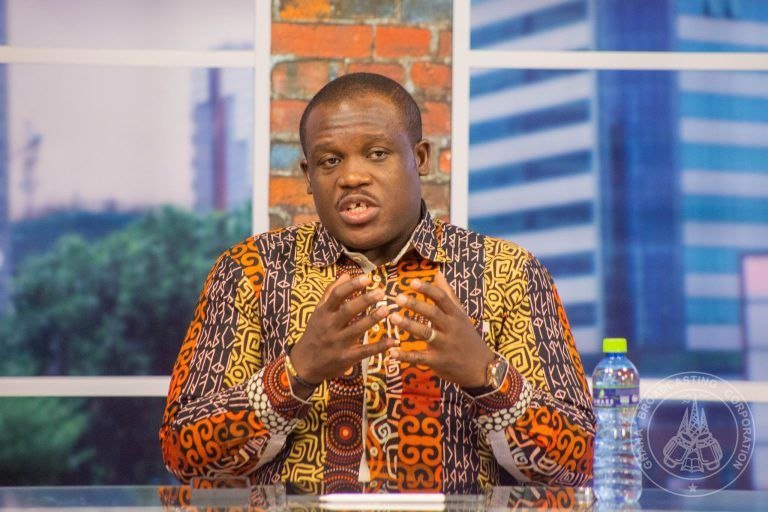Member of Parliament for Ningo-Prampram, Sam Nartey George, urged the people of Ada to channel the spirit of their ancestral warriors into a new kind of fight—one centered on peace, unity, and justice at this year’s Ada Asafotufiami Festival,
His address positioned these values as the foundation for sustainable development and community transformation during the grand durbar of the 88th Asafotufiami Festival, where he also made a cash donation of GH¢100,000 in support of community initiatives.
He emphasized that while the festival commemorates the bravery and sacrifices of past warriors, today’s generation must redirect that courage toward preserving harmony, fostering togetherness, and ensuring fairness in society.
“Today, we gather not just to commemorate our past but to shape our future. As we gather in celebration—clad in the vibrant cloth of our ancestors, dancing to the rhythms of tradition, and honoring the bravery of our forebears—we are reminded that festivals like Asafotufiami are not just cultural events. They are sacred moments when the past meets the present to shape the future” he said.
Peace, he noted, creates a stable environment for agriculture, education, and economic opportunity. Without it, communities are vulnerable to disruption and stagnation.
“Without peace, we build on sand. When we speak kindly to one another, settle disputes with wisdom, and respect diverse views, we nurture peace. In our communities, peace allows farmers to till their land without fear, children to go to school with hope, miners to mine their salt, and investors to look upon Ada as a place of opportunity” he noted
On the subject of unity, the MP emphasized that Ada’s strength lies in its collective identity, not in the dominance of any clan or family, but in the shared contribution of all, including Big Ada, Ada Foah, and communities across the diaspora.
Unity, in his view, is not about sameness but about togetherness, people moving in one direction despite their differences to achieve collective progress. He further explained that justice serves as the moral compass of a thriving society. When fairness governs decisions and leadership is accountable to the people, trust is built.
This trust becomes the bedrock for collaboration, development, and social stability. Justice, he argued, ensures that no one is left behind and that institutions operate with integrity.
Sam George’s message challenged the community to let the Asafotufiami Festival go beyond cultural celebration and become a platform for transformation. He called on Ada to harness the spirit of the occasion to commit to building a peaceful, united, and just society for current and future generations.
The Asafotufiami Festival is a historic and culturally rich celebration observed annually by the people of Ada, a subgroup of the Ga-Dangme ethnic group located in the southern part of Ghana. The name “Asafotufiami” is derived from the Dangme words “Asafo-to-fiam,” which translates to “shooting muskets by a group.” It is a compound of three terms: “Asafo,” meaning warriors; “to,” meaning muskets or old guns; and “fiam,” meaning to shoot. The name reflects the festival’s deep-rooted connection to Ada’s warrior past.
Historically, the Ada people, due to their smaller numbers, often found themselves in a defensive position during inter-tribal conflicts. To assert and protect their territory, they fought in significant battles such as the Katamanso War, the Glover War, and the Battle of Nonobe. After each military campaign, the community welcomed returning warriors with elaborate rituals, including the firing of muskets and the symbolic washing of their feet to cleanse and honor them.
By the 1900s, as external tribal wars became a thing of the past, the traditional rituals for returning soldiers were no longer necessary. However, the people of Ada felt a strong cultural need to preserve the memory and valor of their ancestors and warriors. This led to the institutionalization of the Asafotufiami Festival as a ceremonial event to honor the bravery, legacy, and leadership of their forebears. Today, the festival is not only a reenactment of military traditions but also a vibrant expression of community pride, cultural identity, and historical continuity


